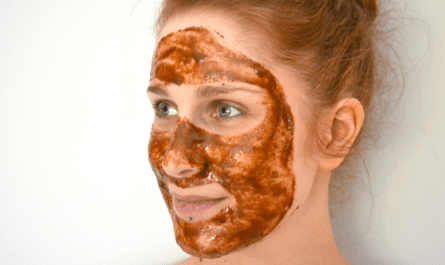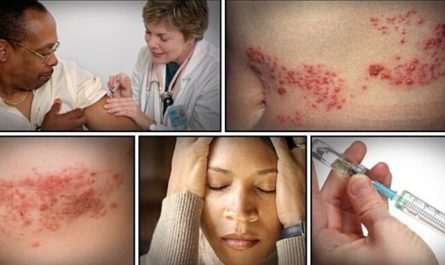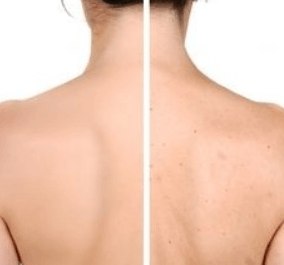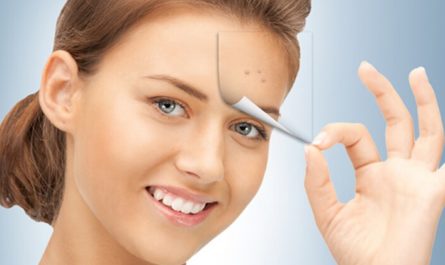Having a dry scalp can be both uncomfortable and embarrassing. Itchy and flaky skin on your scalp can leave you feeling self-conscious and constantly scratching your head. Fortunately, several easy and natural remedies can help you get rid of a dry scalp and restore the health of your hair and skin. This article will explore 12 effective home remedies for dry scalp.
Common Causes of Dry Scalp
A dry scalp occurs when the skin on your scalp becomes dehydrated and lacks moisture. This can result in itching, flaking, and even redness.
Various factors can contribute to a dry scalp. It is essential to address the issue promptly to prevent it from worsening and affecting your overall hair health.
- Environmental conditions: Cold weather, low humidity, and exposure to dry air can strip the scalp of its natural moisture, leading to dryness and flakiness.
- Overwashing: Washing your hair too frequently or using harsh shampoos can strip the scalp of its natural oils, resulting in dryness.
- Hot water showers: Frequent hot water showers can contribute to dryness by depleting the natural oils from the scalp.
- Harsh hair care products: Certain hair care products, such as shampoos, conditioners, and styling products that contain harsh chemicals, sulfates, or alcohol, can irritate the scalp and cause dryness.
- Scalp conditions: Certain scalp conditions like seborrheic dermatitis, scalp psoriasis, or eczema can cause dryness, itching, and flaking.
- Skin conditions: Dry scalp can be associated with conditions like xerosis (dry skin), where the scalp loses its moisture-retaining ability.
- Overuse of heat styling tools: Frequent use of heat styling tools like blow dryers, curling irons, and straighteners can dehydrate the scalp and lead to dryness.
- Improper diet: A diet lacking essential nutrients, especially omega-3 fatty acids and vitamins A and D, can contribute to a dry scalp.
- Hormonal changes: Hormonal fluctuations, such as those that occur during pregnancy or menopause, can affect the oil production in the scalp and lead to dryness.
- Stress: Chronic stress can disrupt the balance of hormones and negatively impact the overall health of the scalp, contributing to dryness.

Why You Should Opt for Home Remedies
When it comes to treating dry scalp, home remedies are often the best choice. They are cost-effective, easily accessible, and typically free from harsh chemicals in commercial products.
Home remedies utilize natural ingredients that nourish your scalp, balance its pH levels, and restore moisture to alleviate dryness and flakiness. Additionally, they offer a holistic approach to hair care, promoting overall scalp health.
12 Easy Home Remedies to Get Rid of Dry Scalp
A dry scalp can be a bothersome condition, causing itchiness, flakiness, and discomfort. If you’re dealing with dry scalp, don’t fret! Several natural remedies can help soothe and nourish your scalp, restoring its health and vitality. Here are 12 effective remedies to try:
1. Coconut Oil
Apply a generous amount of warm coconut oil to your scalp and gently massage it in. Leave it on for at least 30 minutes, or overnight if possible, before rinsing it out with a gentle shampoo. Coconut oil is rich in fatty acids, such as lauric acid, that deeply moisturize and nourish the scalp, reducing dryness and itchiness. Its antimicrobial properties can also help combat scalp infections and dandruff.
2. Olive Oil
Similar to coconut oil, olive oil is another excellent natural moisturizer for the scalp. Warm some olive oil and massage it into your scalp. Leave it on for about 30 minutes before rinsing thoroughly. Olive oil contains antioxidants and vitamin E, which help nourish and hydrate the scalp. It also has anti-inflammatory properties that can soothe scalp irritation.
3. Tea Tree Oil
With its antimicrobial and anti-inflammatory properties, tea tree oil can effectively combat dry scalp. Mix a few drops of tea tree oil with a carrier oil, such as coconut or jojoba oil. Massage the mixture into your scalp and leave it on for 20-30 minutes before rinsing. Tea tree oil helps soothe itchiness, reduce inflammation, and fight off scalp infections.
4. Aloe Vera
Extract the gel from a fresh aloe vera leaf and apply it directly to your scalp. Leave it on for about 30 minutes before rinsing it off. Aloe vera has soothing and moisturizing properties that can alleviate dryness and irritation on the scalp. It also contains enzymes and vitamins that promote a healthy scalp environment.
5. Apple Cider Vinegar
Dilute apple cider vinegar with an equal amount of water and use it as a final rinse after shampooing. Massage the mixture into your scalp, let it sit for a few minutes, and then rinse thoroughly.
Apple cider vinegar helps balance the pH level of the scalp, reducing dryness and restoring its natural moisture barrier. It also has antimicrobial properties that can help combat scalp infections and dandruff. Note: If you have sensitive skin, it’s best to dilute the apple cider vinegar with more water.
6. Baking Soda
Create a paste by mixing baking soda with water. Gently massage the paste into your scalp, focusing on areas prone to dryness. Leave it on for 10-15 minutes before rinsing thoroughly. Baking soda helps exfoliate the scalp, remove dead skin cells, and alleviate dryness. However, use baking soda sparingly as it can be drying if used excessively.
7. Yogurt
Apply plain, unsweetened yogurt to your scalp and let it sit for 30 minutes before rinsing off. The lactic acid in yogurt helps exfoliate the scalp and moisturize it, reducing dryness and flakiness. Yogurt also contains probiotics that can help maintain a healthy scalp microbiome and prevent scalp infections.
8. Honey
Massage a tablespoon of honey into your scalp and leave it on for about 20 minutes. Rinse thoroughly afterward. Honey is a natural humectant, attracting and retaining moisture in the scalp, resulting in improved hydration. It also has antimicrobial properties that can help fight scalp infections and soothe irritation.
9. Avocado
Mash a ripe avocado and apply it to your scalp, ensuring full coverage. Leave it on for 30 minutes before rinsing off. Avocado is rich in healthy fats, vitamins, and minerals that deeply moisturize and nourish the scalp, alleviating dryness. It also contains antioxidants, such as vitamins C and E, that promote scalp health.
10. Jojoba Oil
Massage a few drops of jojoba oil into your scalp and leave it on overnight. Jojoba oil closely resembles the natural oils produced by the scalp, making it an excellent moisturizer. It helps regulate oil production, soothes dryness, and promotes a healthy scalp environment. Jojoba oil is also rich in vitamins and minerals that nourish the scalp and support hair growth.
11. Essential Oils
Mix a few drops of essential oils like lavender, rosemary, or peppermint with a carrier oil, such as coconut or almond oil. Massage the mixture into your scalp and let it sit for 30 minutes before washing your hair.
Essential oils have nourishing and soothing properties that can help combat dry scalp and promote a healthier scalp environment. Lavender oil has calming properties, rosemary oil stimulates hair growth, and peppermint oil has a cooling effect that can help relieve itching.
12. Hydration and Balanced Diet
Drink plenty of water to stay hydrated, as dehydration can contribute to a dry scalp. Additionally, ensure your diet includes foods rich in omega-3 fatty acids, such as fatty fish (salmon, mackerel), walnuts, and flaxseeds. Omega-3 fatty acids help nourish the scalp, reduce inflammation, and support a healthy scalp environment.
Remember, consistency is key when using these natural remedies. Give them time to work and make them a part of your regular scalp care routine. If your dry scalp persists or worsens, it’s advisable to consult a dermatologist for a proper diagnosis and further guidance.
How to Prevent Dry Scalp?
- Avoid using boiling water to rinse your hair. Hot water will damage the natural protective oils in your hair and irritate your scalp. If you often wash your hair with hot water, you tend to have a dry scalp.
- A mild shampoo is very helpful for your hair’s natural oils, which help keep the follicles hydrated and your scalp without itching. You can choose a shampoo with tea tree extract and sunflower oil to provide nutrients to your scalp.
- Avoid styling products such as mousse and hairspray that can dry your scalps. They may worsen your dry scalp and damage the hair.
- Do not stay in an air conditioner for a long time, as this can cause moisture loss in the scalp.
- Avoid leaving the shampoo or conditioner in the hair for a long time. This will hurt your hair.
- Do not use a hair dryer to dry your hair, as excessive heat from a hairdryer can damage the production of natural oils on the scalp.
- Eat more protein-rich foods like leafy greens, fruits, eggs, and whole grains.
- Drink plenty of water; this can help keep the scalp hydrated. Avoid caffeine and alcohol.
- Eat foods rich in Omega-3s, which can moisturize the scalp, including salmon, nuts, flax seeds, spinach, etc.
- Eat more rich foods in vitamin E, like almonds, sunflower seeds, blueberries, tomatoes, etc.
- Avoid too much stress, which can also cause a dry scalp. You can relieve stress with yoga.
FAQs
1. Can a dry scalp lead to hair loss?
No, a dry scalp itself does not cause hair loss. However, if left untreated, it can lead to conditions like dandruff, which may contribute to hair loss. Treating dry scalp with these remedies can help prevent such issues and promote a healthy scalp environment for hair growth.
2. Are these remedies suitable for all hair types?
Yes, these remedies are generally suitable for all hair types. However, if you have any specific allergies or sensitivities, you should do a patch test before applying them to your scalp.
3. Can I combine multiple remedies for better results?
Yes, you can experiment with combining different remedies to suit your needs. However, it’s essential to be cautious and monitor how your scalp responds to the combination. If any irritation occurs, discontinue use and consult a dermatologist.
5. When to See a Professional?
While most cases of dry scalp can be effectively managed at home, there are instances where professional help may be necessary. Persistent dryness, severe itching, or the presence of open sores on the scalp may indicate an underlying condition that requires medical attention.
If home remedies and over-the-counter solutions do not provide relief, it is advisable to consult with a dermatologist or trichologist for a thorough assessment.
Conclusion
A dry scalp can be a bothersome condition, but with these twelve easy home remedies, you can effectively get rid of a dry scalp and restore the health of your hair and scalp. Remember to be consistent and patient with the remedies, and make necessary lifestyle changes to maintain a healthy scalp.






